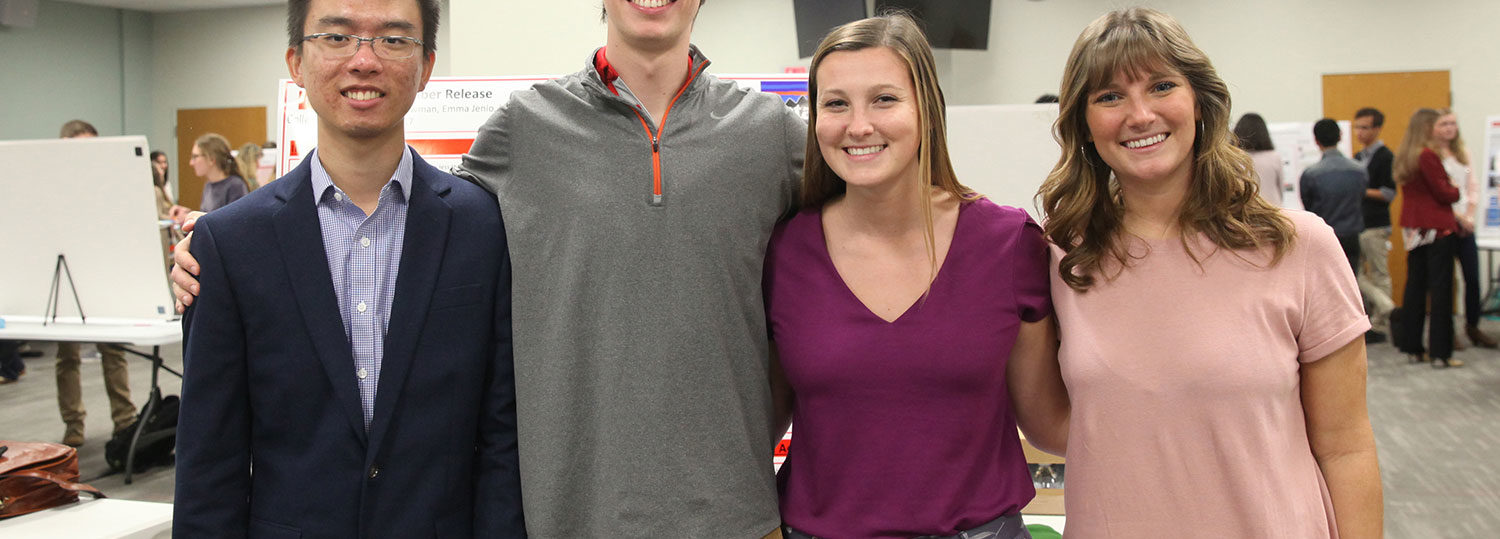You can’t see it, but it’s there.
Tiny, microplastic pollution is building beneath the surface of our oceans, rivers and lakes, and the clothes we wear are part of the reason why.
Some of today’s most popular synthetic fabrics ‒ such as nylon, polyester and spandex ‒ contain microplastics. When these garments are washed, small fabric fibers shed down the drain, pass through wastewater treatment plants and are discharged into waterways.
But the level of pollution could soon slow thanks to a team of College of Textiles students who have created a method to test microfiber release of fabrics.
“Our test method could be given to [textile] suppliers to figure out how to design better fabrics that minimize microfiber release,” said textile technology student Emma Jenio.
Jenio is part of a senior design course in the Department of Textile Engineering, Chemistry and Science. The course matches student teams with companies, who challenge the students to solve a relevant industrial or research problem. Working with sponsoring companies under guidance of Textiles faculty members, the students have two semesters to create a solution.
This year, several of the two dozen senior design projects focus on sustainability, addressing issues from pollution and waste reduction to sustainable product design.
“Sustainability is such a relevant thing now in the textile industry,” said textile technology student Hannah Parey, whose team worked with Patagonia to design the microfiber testing process.
Smarter Fabric, Products
The team that Griffin Prufer is part of has been working with Kaneka Corporation’s new biodegradable fiber to develop a functional textile. The team has tested agriculture uses with hopes that the fiber can replace some of the conventional products that cause chemical or plastic pollution.
“Something needs to be done about plastic pollution. So far, [this fiber] is pretty promising,” said Prufer, who is majoring in textile engineering.
Another fabric with sustainable potential belongs to the team working with Hanesbrands to design a bio-inspired shirt that’s free of chemical finishes.
“Biomimicry is taking something from nature and imitating it in a man-made product,” said textile technology student Maggie Swaim. “We are trying to make an athletic shirt that wicks [sweat] through the structure of the shirt instead of with [chemical] finishes.”
There’s also a team developing sensor technology for conference room chairs at the City of Raleigh, which could use the data to optimize energy savings when sensors detect unoccupied rooms.
A More Sustainable Future
For textile engineering and textile technology students, senior design is the capstone experience that propels them into industry. This hands-on experience prepares them for the workplace environment and, for many students, provides the opportunity to innovate with sustainability in mind.
“Figuring out sustainability is a challenge, and it’s worth it,” Jenio said.
